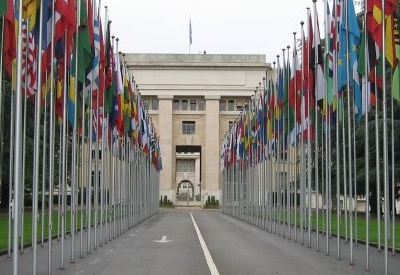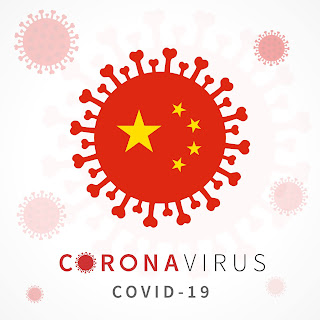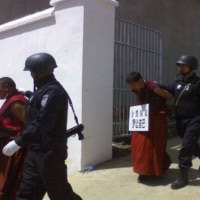Chinese central government obliterates "One - Country/ Two - Systems" with passage of National Security Law in HK SAR
China obliterates "One - Country/ Two - Systems" with passage of National Security Law in HKSAR
It began with Tibet in the new Mao led era in 1950. The central government was buoyed by its victory in the Civil War against Chiang Kai - shek and the Kuomintang Nationalist Party in 1948. Chiang Kai - shek ruled China from 1927 - 1937, through the Kuomintang. The nationalists were fragmented unlike the modern CPC, though, the CCP was disjointed as it was learning to lead under Mao in the early days and eventually failed with policies such as The Great Leap Forward and The Cultural Revolution. China sought moderation after Mao's passing, primarily to spur trade and grow the economy. To that end the CCP had to demonstrate to the outside world a different China from Mao's version and Deng Xiaoping provided a voice of moderation to the international community that was reassuring for Great Britain to negotiate the handover of Hong Kong to China in 1997. There would be a fifty year period of British policies that guaranteed rights and freedoms to all Hongkongers, while also setting term limits for public officials, and inviting FDI.
The CPC led by Xi, is expansionist and has reinforced the Party's objectives by eliminating term limits for Xi Jinping. The PLA is sabre - rattling with its neighbours, staring down American presence in the South China Sea, and offering loans to developing countries to develop their infrastructure through Xi's the (BRI) Belt and Road Initiative. Italy, a prominent G7 nation state has signed on with Beijing to redevelop a port in Trieste (Beijing's choice as it links the port with rail) and not Genoa. One writer notes that some Northern Italians sold textile and leather goods companies to China. "Italy then allowed 100,000 Chinese workers from Wuhan and Wenzhou to move to Italy to work in these factories, with Direct flights between Wuhan and Northern Italy. This continued post outbreak, so is it mere coincidence that Northern Italy is now Europe’s hotspot for Corona Virus?" The U.K. has since passed Italy in infections and fatalities 43,659/ 34,744.
The icing on Xi's cake would be to pull Taiwan into China's orbit while expanding its technical prowess through Huawei's 5G network.
Suffice it to say, Xi faces some direct threats to his leadership and the continued prosperity and development of China.
1) The international community is evaluating China's complicity in the breakout of COVID - 19, that has, according to John Hopkins, resulted in 10, 278, 458 infections globally, and 504, 936 deaths as of June 30 - 12:15 AM. As most economies affected by the coronavirus, supply chains are being re-routed, reliance on China for medical supplies are being questioned, while the death toll is expanding. The central government remains furtive in accepting responsibility.
2) Hongkongers began protesting against Chinese rule in 2003, though, they date to the 1980's and in 1996. Ultimately, HK'ers want universal suffrage, which is a red line for the central government. The passing of the security law is welcomed by businesses that were affected by last years protests. Unfortunately, the quid pro will find democracies already exacerbated by COVID - 19 will become more strident in their approach to Beijing belligerence in the South China Sea theatre, the stand-off with India at the LAC, the daily incursion into Taiwanese airspace, and the forced education camps in Xinjiang as well as the continued occupation of Tibet and the constraints on Buddhist culture. Hongkonger's are being offered measured amnesty in Great Britain, while Taiwan is offering the same to those disaffected by the change in Hong Kong's freedoms.
3) President Tsai Ing - wen has started her second term and makes no secret of her desire to avoid a union with autocratic mainland China. Taiwan has continued purchasing arms from the U.S. roiling the central government. China has military exercises planned for August in what some say are a mock invasion of the Pratas Islands to further expand their presence in the South China Sea, while further encroaching on Taiwanese sovereignty. The U.S., Japan, and Allies promise to defend Taiwan.
4) The U.S. election in November, currently has President Trump polling from 3 - 10 points in favour of Joe Biden in a general election, according to FiveThirtyEight FiveThirtyEight June 30 6:22 A.M.
China may prefer a Trump re-election as he has split support among Allies due to his tariff policy, his handling of the coronavirus, his penchant for strong authoritarian leaders, and brusque nature within the international community. A Biden victory stands to unite the international community, strengthening democracy and the rules - based international order.
5) International Trade is foundering under the weight of COVID - 19 as nation - states focus on controlling the pandemic and restarting their economies. There is a populist flu that is being waged between super-powers China and America with other nation - states tracking inwards to protect civilians and their economies. With the arrival of a vaccine, the international community will begin to find its legs again, but, the trust factor without a solid vaccine to mitigate against COVID - 19, will result in a tepid response to expanding their economies and trade. The U.S. - China trade signed in January is under threat because of competing interests between the two parties. Donald Trump wants China to buy soybeans and other products top support those states negatively affected by the coronavirus and who could make a difference in his re-election prospects. A Biden win may throw the trade agreement into a prolonged holding pattern.
Conclusion: The Margaret Thatcher government must have known in negotiation that the central government would veer from the spirit of the agreement before maturity, based on the pending timeline and the nature of the CPC. London had given Hong Kong officials a fair degree of autonomy and pegged the Hong Kong currency at HK 7.8 - USD 1 on October 17, 1983 instilling confidence in Hong Kong financial sectors beyond the handover. U.S. Secretary of State Mike Pompeo has railed against the new legislation and promises to revoke Hong Kong's privileged status, while curtailing imports of American dual use hi tech parts and Defence equipment.
China will continue its own interpretation of justice that favours economic and political matters. The Meng Wanzhou case with the arrests of the two Canadians is endemic of Chinese justice. Cora Chan, an associate professor at the University of Hong Kong summed up the new climate in Hong Kong: "The [national security law] opens up a window into widespread interference in people's lives and potentially penetrates into a lot of activities that contribute to a lot of the vibrancy of civil society and the character of this financial center."
The future of BRICS (Brazil/Russia/India/China/South Africa) alliance seems dubious. The Quads (U.S./Japan/Australia/India) appears to be be drawing closer to counter Sino aggression. This is the dawn of a new Cold War.
Hong Kong National Security Law Text
 | |
| Image: Thomas Nast 2018 |
It began with Tibet in the new Mao led era in 1950. The central government was buoyed by its victory in the Civil War against Chiang Kai - shek and the Kuomintang Nationalist Party in 1948. Chiang Kai - shek ruled China from 1927 - 1937, through the Kuomintang. The nationalists were fragmented unlike the modern CPC, though, the CCP was disjointed as it was learning to lead under Mao in the early days and eventually failed with policies such as The Great Leap Forward and The Cultural Revolution. China sought moderation after Mao's passing, primarily to spur trade and grow the economy. To that end the CCP had to demonstrate to the outside world a different China from Mao's version and Deng Xiaoping provided a voice of moderation to the international community that was reassuring for Great Britain to negotiate the handover of Hong Kong to China in 1997. There would be a fifty year period of British policies that guaranteed rights and freedoms to all Hongkongers, while also setting term limits for public officials, and inviting FDI.
The CPC led by Xi, is expansionist and has reinforced the Party's objectives by eliminating term limits for Xi Jinping. The PLA is sabre - rattling with its neighbours, staring down American presence in the South China Sea, and offering loans to developing countries to develop their infrastructure through Xi's the (BRI) Belt and Road Initiative. Italy, a prominent G7 nation state has signed on with Beijing to redevelop a port in Trieste (Beijing's choice as it links the port with rail) and not Genoa. One writer notes that some Northern Italians sold textile and leather goods companies to China. "Italy then allowed 100,000 Chinese workers from Wuhan and Wenzhou to move to Italy to work in these factories, with Direct flights between Wuhan and Northern Italy. This continued post outbreak, so is it mere coincidence that Northern Italy is now Europe’s hotspot for Corona Virus?" The U.K. has since passed Italy in infections and fatalities 43,659/ 34,744.
The icing on Xi's cake would be to pull Taiwan into China's orbit while expanding its technical prowess through Huawei's 5G network.
Suffice it to say, Xi faces some direct threats to his leadership and the continued prosperity and development of China.
1) The international community is evaluating China's complicity in the breakout of COVID - 19, that has, according to John Hopkins, resulted in 10, 278, 458 infections globally, and 504, 936 deaths as of June 30 - 12:15 AM. As most economies affected by the coronavirus, supply chains are being re-routed, reliance on China for medical supplies are being questioned, while the death toll is expanding. The central government remains furtive in accepting responsibility.
2) Hongkongers began protesting against Chinese rule in 2003, though, they date to the 1980's and in 1996. Ultimately, HK'ers want universal suffrage, which is a red line for the central government. The passing of the security law is welcomed by businesses that were affected by last years protests. Unfortunately, the quid pro will find democracies already exacerbated by COVID - 19 will become more strident in their approach to Beijing belligerence in the South China Sea theatre, the stand-off with India at the LAC, the daily incursion into Taiwanese airspace, and the forced education camps in Xinjiang as well as the continued occupation of Tibet and the constraints on Buddhist culture. Hongkonger's are being offered measured amnesty in Great Britain, while Taiwan is offering the same to those disaffected by the change in Hong Kong's freedoms.
3) President Tsai Ing - wen has started her second term and makes no secret of her desire to avoid a union with autocratic mainland China. Taiwan has continued purchasing arms from the U.S. roiling the central government. China has military exercises planned for August in what some say are a mock invasion of the Pratas Islands to further expand their presence in the South China Sea, while further encroaching on Taiwanese sovereignty. The U.S., Japan, and Allies promise to defend Taiwan.
4) The U.S. election in November, currently has President Trump polling from 3 - 10 points in favour of Joe Biden in a general election, according to FiveThirtyEight FiveThirtyEight June 30 6:22 A.M.
China may prefer a Trump re-election as he has split support among Allies due to his tariff policy, his handling of the coronavirus, his penchant for strong authoritarian leaders, and brusque nature within the international community. A Biden victory stands to unite the international community, strengthening democracy and the rules - based international order.
5) International Trade is foundering under the weight of COVID - 19 as nation - states focus on controlling the pandemic and restarting their economies. There is a populist flu that is being waged between super-powers China and America with other nation - states tracking inwards to protect civilians and their economies. With the arrival of a vaccine, the international community will begin to find its legs again, but, the trust factor without a solid vaccine to mitigate against COVID - 19, will result in a tepid response to expanding their economies and trade. The U.S. - China trade signed in January is under threat because of competing interests between the two parties. Donald Trump wants China to buy soybeans and other products top support those states negatively affected by the coronavirus and who could make a difference in his re-election prospects. A Biden win may throw the trade agreement into a prolonged holding pattern.
Conclusion: The Margaret Thatcher government must have known in negotiation that the central government would veer from the spirit of the agreement before maturity, based on the pending timeline and the nature of the CPC. London had given Hong Kong officials a fair degree of autonomy and pegged the Hong Kong currency at HK 7.8 - USD 1 on October 17, 1983 instilling confidence in Hong Kong financial sectors beyond the handover. U.S. Secretary of State Mike Pompeo has railed against the new legislation and promises to revoke Hong Kong's privileged status, while curtailing imports of American dual use hi tech parts and Defence equipment.
Furthermore, the legislation effectively ends the protest movement. Joshua Wong, an activist who who helped lead massive pro-democracy protests in Hong Kong in 2014 said on Twitter that it "marks the end of Hong Kong that the world knew before." In addition, Hong Kong democracy group - Demosisto, a group formed by Wong, will discontinue all operations.
China will continue its own interpretation of justice that favours economic and political matters. The Meng Wanzhou case with the arrests of the two Canadians is endemic of Chinese justice. Cora Chan, an associate professor at the University of Hong Kong summed up the new climate in Hong Kong: "The [national security law] opens up a window into widespread interference in people's lives and potentially penetrates into a lot of activities that contribute to a lot of the vibrancy of civil society and the character of this financial center."
The future of BRICS (Brazil/Russia/India/China/South Africa) alliance seems dubious. The Quads (U.S./Japan/Australia/India) appears to be be drawing closer to counter Sino aggression. This is the dawn of a new Cold War.
Hong Kong National Security Law Text
 | |
| Image - Reuters June 30 2020 |




